Agriculture & Environment
Mak Student’s Push-Pull App to Help Farmers Control Maize & Sorghum Pests
Published
4 years agoon
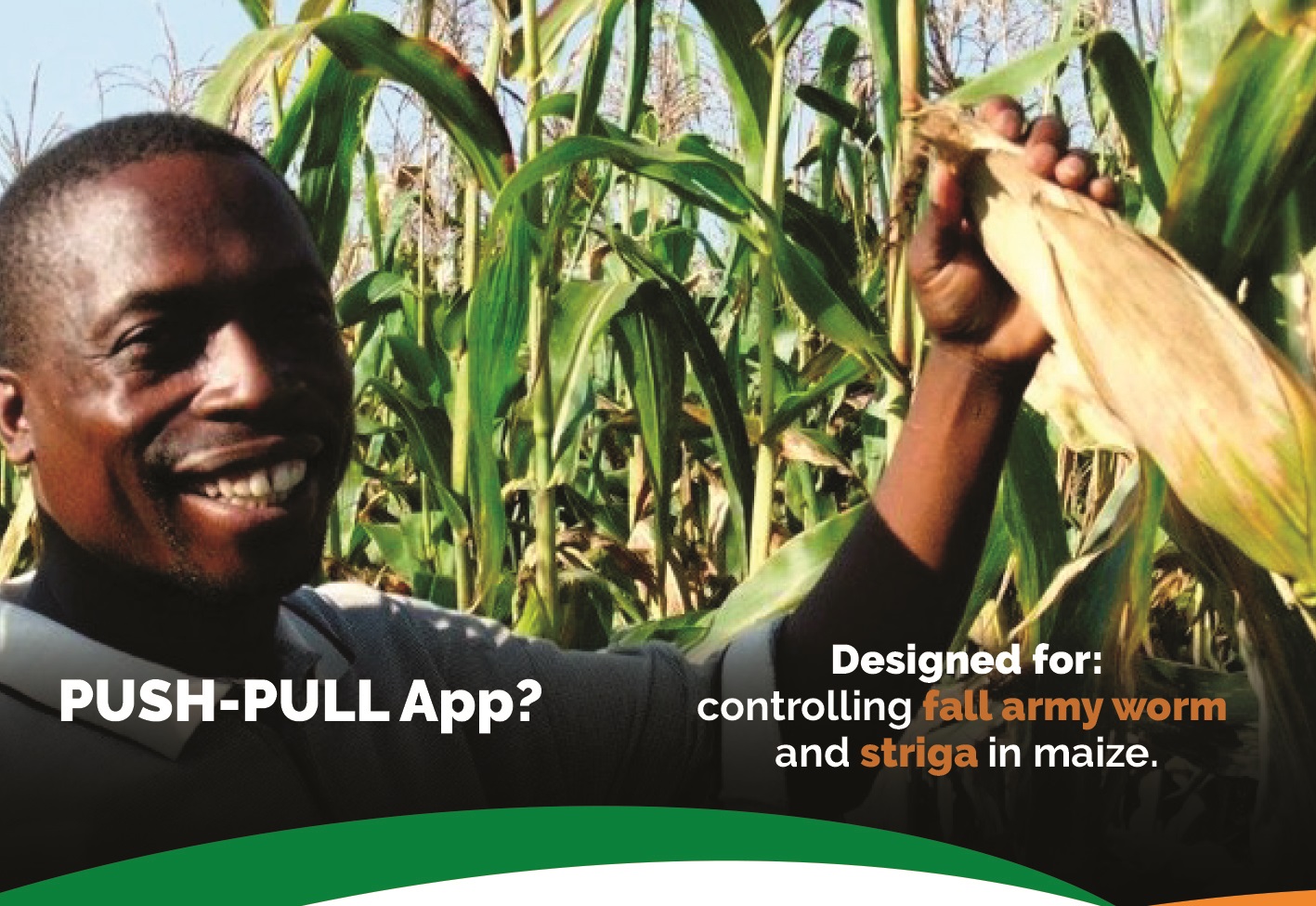
By Jane Anyango
Makerere University student Paul Mugisha in collaboration with a team of scientists from the International Centre of Insect Physiology and Ecology (ICIPE), Keele University and Leeds University has developed a mobile app to help maize and sorghum farmers to control pests without using pesticides.
Paul Mugisha is undertaking a Master of Science in Plant breeding and Seed systems at Makerere University’s Department of Agricultural Production, School of Agricultural Sciences under the College of Agricultural and Environmental Sciences (CAES). Mugisha is also the Chief Executive Officer (CEO) Agape Innovations Ltd.
The purpose of this app is to enable a farmer to do push-pull on his garden without interacting with an extension agent but purely using his mobile phone which does not only solve the problem of scarcity of extension workers, but also, prevents the spread of COVID-19.
The new app code-named, “the Push-Pull App”, was launched and made available for use on Google play store on 9th August, 2021 by an international team of scientists to support farmers across Africa to use innovative, environmentally-friendly techniques for evading crop pests.
In a press release issued during the launch, scientists noted that African smallholder farmers face major challenges from insect pests such as fall armyworm, and weeds such as striga that can destroy their crops. Fall armyworm is a serious threat to food security and livelihoods and already affects at least 400,000 hectares, causing crop losses worth an estimated $3 billion a year.
In the release, the “Push-Pull technology” was described as a novel method of crop management and a solution which can massively reduce farmers’ losses from pests and increase their harvest sizes, whilst avoiding the need to use harmful and expensive chemical pesticides.
The media release in part states that the “Push-Pull technology” is a scientific method of planting crops like maize and sorghum, alongside particular species of forage grasses and legumes that repel pests and supress weeds.
“It was developed by scientists at ICIPE in Kenya and partners and is designed to protect the plants against devastating pests like the fall armyworm and the striga weed, with the companion plants also improving soil fertility. But a major challenge is how to communicate advice and information about this to millions of smallholder farmers in sub-Saharan Africa, to get as many of them using the technique as possible.

MSc. Plant Breeding and Seed systems
MARCCI/DAP/ SAS/ CAES/ MAK Push-Pull App Designer
To help address this challenge, a new mobile phone app has been launched by Agape Innovations Ltd, in collaboration a team of scientists from the University of Leeds, University of Keele and ICIPE.
The app is part of a larger project called, “Scaling up Bio control Innovations in Africa”, funded by the Global Challenges Research Fund, which seeks to understand how biocontrol methods have been used across Africa and to encourage their uptake”, part of the media release states.
The Principal Investigator (PI) Dr Steve Sait, from the University of Leeds’ School of Biology, said the Push-Pull method of pest control is decades old and is used successfully by thousands of smallholder farmers across Africa.
“We hope that this collaboration, and this new app, can help us extend knowledge of this technique to potentially millions of other farmers who could be benefitting from it. Compared to chemical pesticides, Push-Pull costs less money to the farmer, results in less damage to their crops, and it avoids harming other insect species that play valuable roles in the ecosystem.”
The PI said, research by the scientists behind the Push-Pull technique, including Keele’s Professor Toby Bruce, has proven that odours released by the companion plants can effectively repel fall armyworm and protect crops against the pest.
Early adopter farmers according to the scientists have had great success with this technique, reporting five times less fall armyworm damage and a doubling or even tripling of crop yield, showing the huge potential this has for farmers and crop-producing smallholders.In addition he said, It also reduces the environmental impact of farming by protecting against pests without using pesticides, as well as improving soil quality without inorganic fertilisers.
Dr. Steve Sait explained that the Push-Pull App has been developed by Agape innovations and is available on Android phones, designed to work on the basic smartphones that are being increasingly used by smallholder farmers in Africa.
The App he adds, gives farmers information they need to get started with Push-Pull farming, and is not only free but 100% available offline, meaning a lack of internet connection in rural regions will not affect its function.
“The ultimate goal is to provide a resource for farmers that is informed by science, protects their crops and improves their harvest, which they can access any time of day from anywhere in the world”.
Professor Toby Bruce from Keele University’s School of Life Sciences said the team was excited to see if this App can serve as a vehicle for taking practical information to the farmer.
“It is designed to share key details about how to get started with Push-Pull. We hope this will increase the number of farmers taking up this innovative approach that provides real benefits by improving crop protection and food security.”Prof. Toby Bruce said.
Makerere University student- the App designer Mr.Paul Mugisha, who is also CEO of Agape Innovations Ltd underscored the significance of ICT in addressing farmers’ challenges in critical challenging times involving natural calamities.
“With the world going digital and uncertainties like Covid-19 amplifying the challenges of physical interactions, ICT is so vital in today and tomorrow’s agriculture. At Agape, we built the Push-Pull app as a global tool to equip a farmer with all that is needed for a successful push-pull garden.
Embedded with audio, visual and graphical expressions we are certain that the Push-Pull app will be relevant to maize and sorghum farmers worldwide for both today and tomorrow in controlling FAW, Striga and Maize stalk borer”, Mr. Mugisha explained.
Mugisha said, in this Push and Pull technology, maize is intercropped with legumes, and forage grasses are planted around this intercrop as a border around the garden. The legume intercrop produces chemicals that repels the pests from the garden (push) while the forage grass in the boundary produces chemicals that attracting insect pests (pull). In addition, the chemicals released by the intercrop roots also cause abortive germination of the parasitic striga weed, providing effective control of this stubborn weed. The legume also fixes nitrogen into the soil thus boosting soil productivity..
More about the PUSH-PULL App
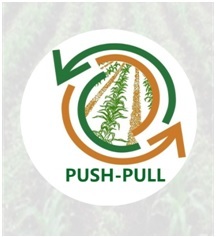
What is Push-Pull App?
PUSH-PULL app is a mobile application that serves as a guide to a farmer whose interest is to control pests in maize and sorghum (like fall army worm and maize stem borer) without using chemicals and also improve the soil conditions without using artificial fertilizers.
The PUSH-PULL app acts as an extension agent on a farmer’s mobile phone providing information about a farming method called push-pull that was developed by scientists at ICIPE, a method that uses natural means for pest control and soil improvement.
What problem is PUSH-PULL app trying to solve?
With PUSH-PULL app, a farmer can access information at anytime of the day be at 6 am on a Sunday morning or at Thursday mid-night, something that is not possible with an extension agent. With this app, a farmer can access information anywhere, whether in his car, in his garden or on his way to the shop. Information is conveniently available for the farmer. With this app, farmers all over the world can access the information on their phones. Whether in Cambodia, Ecuador or in Burkina faso, push-pull information is available
What makes PUSH-PULL app unique?
- Push-Pull App can operate offline 100%. This means it is not limited by internet connectivity and access, which is a big issue in rural communities in developing countries. You therefore do not need internet to use this application
- PUSH-PULL App is 100% free. Anyone can download it for free, access all the app’s section for free and use the information in the app for free.
- Push-Pull App has visual and audio capabilities. it provides you with the options of either reading or listening to the information therein. The app also has elaborate graphics to help the farmer visualize the information
- PUSH-PULL App is compatible with all android versions. This means that the app can operate on all phones with google play store. It can also work on computers as long as they have an app enabling system (bluestacks)
- PUSH-PULL App occupies little space and is fast. The app is light and doesn’t occupy much space on the phone making it handy to download and use.
- PUSH-PULL App is also considerate of the user’s privacy in that an option is provided where a farmers can open and use the app without providing his information (skip logging in)
- PUSH-PULL App is also easy to navigate through, has simple and easily understandable language and provides additional features like YouTube links and google map links to help the farmer in getting help as far as push-pull technology uptake is concerned
Who can use the app?
Farmers of maize and sorghum, extension workers, agricultural researchers and anyone interested in push-pull technology
How can I find the app?
- Open your phone
- Look for an icon called google play store
- Click on the icon and on the search option (the space at the top), type in PUSH-PULL app and click search or OK or Enter (depending on your phone)
- Icons will appear. Click on the icon labelled PUSH-PULL app (with the plant logo)
- Click on install and wait for the app to be installed (this takes a few seconds)
- Click on open and the app will open.
- You can start interacting with the app
- If you want to watch a video on how to operate the push-pull app, you can go on you-tube and search for how to install and use the push-pull app. Once you search for that, a video will appear that will guide you through the whole process.
Designed by:
Mugisha Paul
MSc.Plant Breeding and Seed systems
MARCCI/DAP/ SAS/ CAES/ MAK
With support from:
ICIPE, Keele University, Leeds University.
For pictures please click on this link:
https://drive.google.com/drive/folders/13SaawOuA8gi31ba2PmLDtij0LWmuKWhI?usp=sharing
Please see the embedded video below for guidance on how to use the Push-Pull App
Jane Anyango is the Principal Communication Officer, College of Agricultural and Environmental Sciences (CAES)
You may like
Agriculture & Environment
Mak Moves to Revitalize Food Technology & Business Incubation Centre to Drive Innovation & Entrepreneurship
Published
5 days agoon
July 14, 2025By
Mak Editor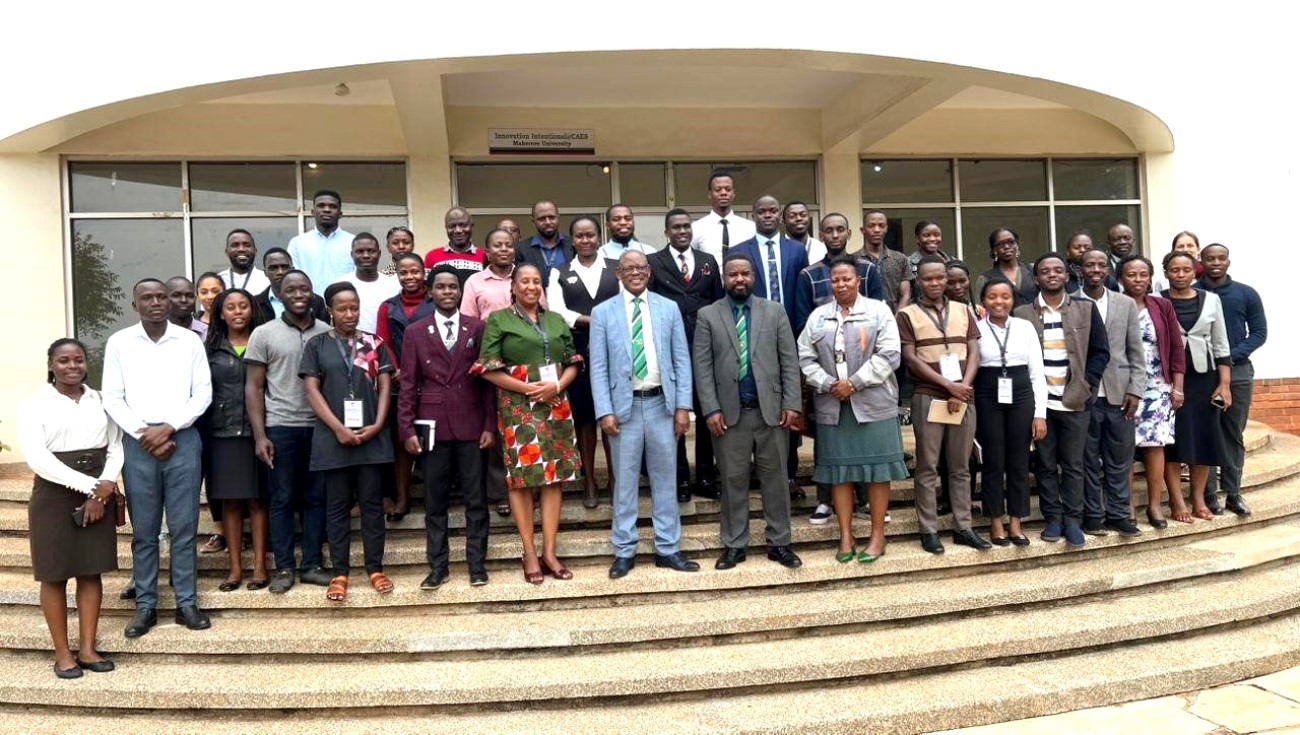
By Ssembogga Derrick
Makerere University marked a significant milestone on Thursday, 10th July 2025, with the launch of the revitalization programme for the Food Technology and Business Incubation Centre (FTBIC). This initiative is poised to position the FTBIC as a national hub for food innovation, student enterprise development, and agro-industrial transformation.
Hosted under the School of Food Technology, Nutrition and Bioengineering (SFTNB) at the College of the Agricultural and Environmental Sciences (CAES), the revitalization of the FTBIC is intended to bridge the gap between academia and industry. “We aim to achieve this by supporting food-based start-ups, enhancing graduate entrepreneurship, and promoting the commercialization of research,” Dr Julia Kigozi, Dean, SFTNB explained. The project receives critical funding from the Makerere University Research and Innovations Fund (MakRIF), which consistently supports innovation and research-based development at the university.
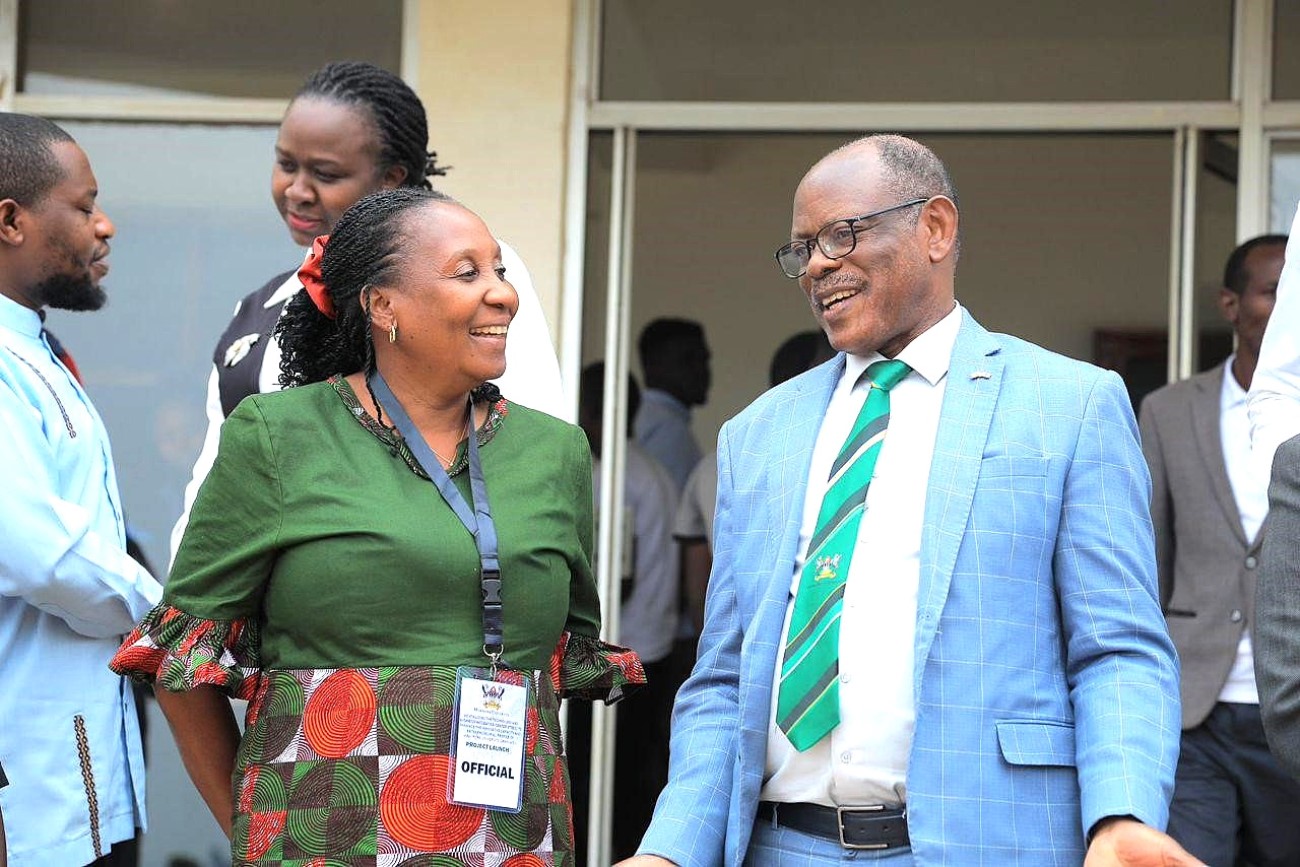
Unveiling a New Strategic Vision
The event, held under the theme “Revitalizing FTBIC to Unlock Innovation and Entrepreneurship Potential among Makerere University Graduates”, marked the official launch of the Centre’s revitalization programme to key stakeholders. It featured the presentation of FTBIC’s new strategic vision and direction, highlighting the commitment of the institution and its partners to fostering graduate entrepreneurship and innovation in food systems. The event also aimed to raise awareness of the Centre’s crucial role in supporting industry, research, and national development.
Participation of stakeholders
The launch attracted a vibrant and diverse audience of over 50 participants. Among the attendees were student representatives; partners from other incubation centers both within and outside Makerere University, including MIIC, UNIPOD, and DGI; as well as representatives from national innovation stakeholders such as Uganda Industrial Research Institute (UIRI) and StartHub Africa.
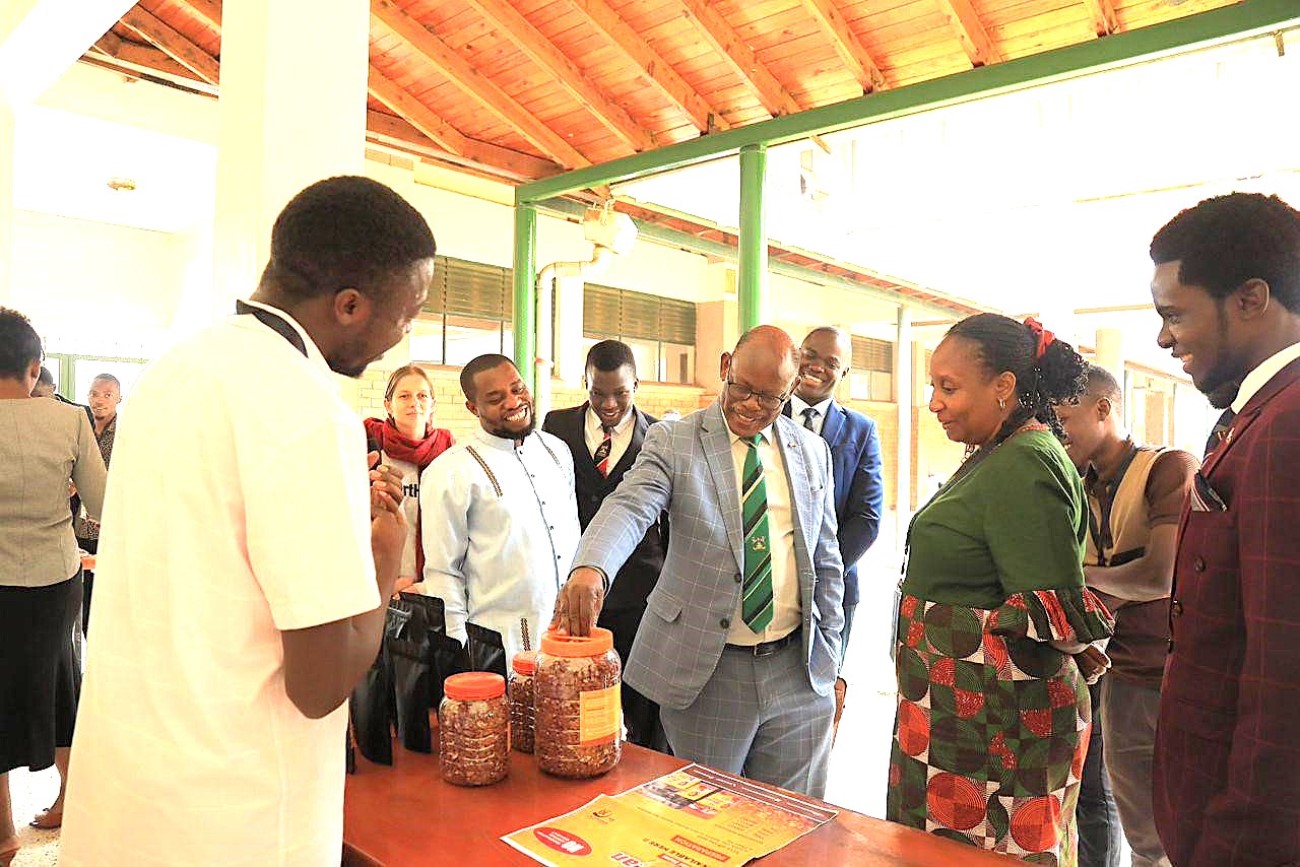
Most notably, the event was honored by the presence of the Vice Chancellor of Makerere University Prof. Barnabas Nawangwe. The Vice Chancellor commended the revitalization efforts, acknowledging the Centre’s immense potential to incubate hundreds of food-based start-ups and create employment opportunities for thousands of graduates. “The Centre is now well-positioned to become a flagship platform for innovation, employment creation, and agro-industrial development in Uganda and beyond. Makerere University remains committed to supporting such initiatives that align with national priorities and global development goals.”
The event featured the unveiling of the operational framework for the revitalized Centre, highlighting its commitment to innovation, entrepreneurship, and practical graduate training. Stakeholders in attendance expressed enthusiasm and pledged support for future collaboration, research, and product development initiatives aligned with national development priorities. The event also provided a platform to deepen partnerships with private sector actors and development organizations, reinforcing confidence in the Centre’s potential to serve as a national model for university-led incubation.
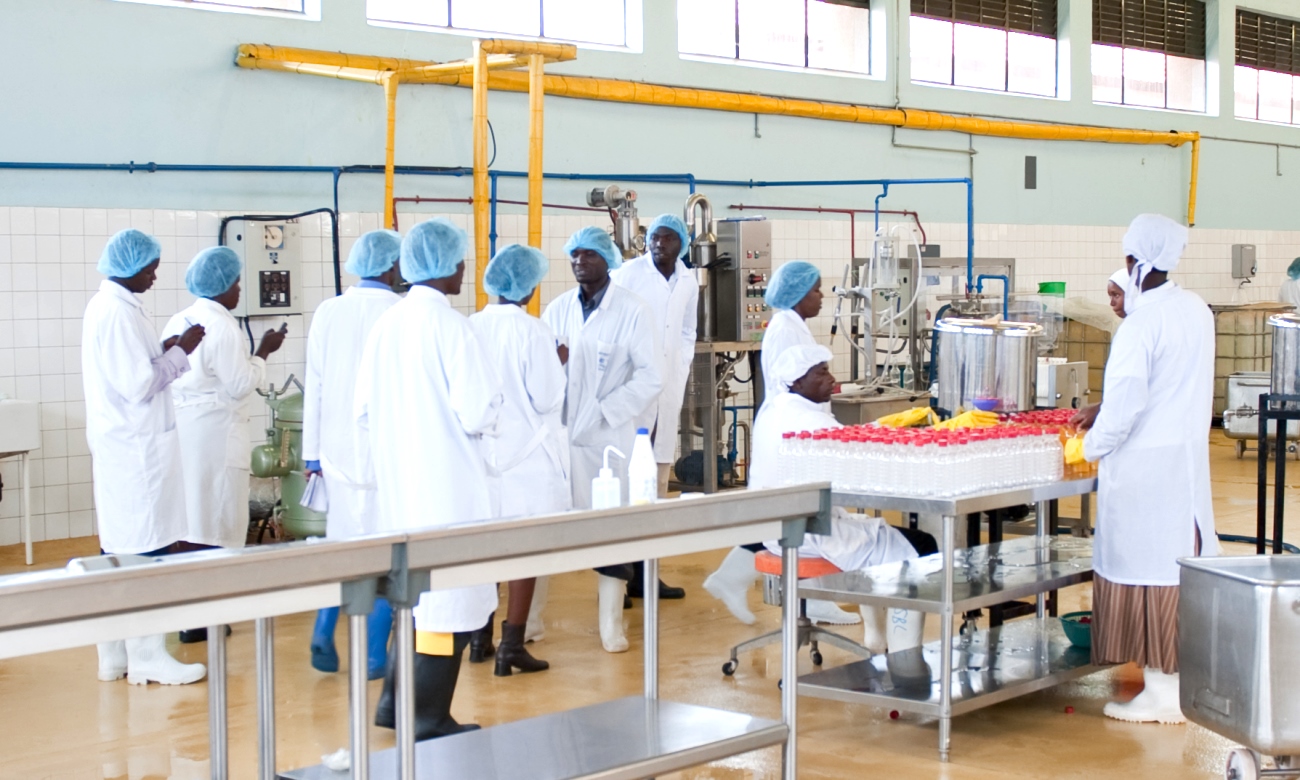
Agriculture & Environment
SophiA Project Upgrades Medical Infrastructure at Buvuma Health Centre IV, Trains Technicians for Maintenance Works
Published
1 week agoon
July 9, 2025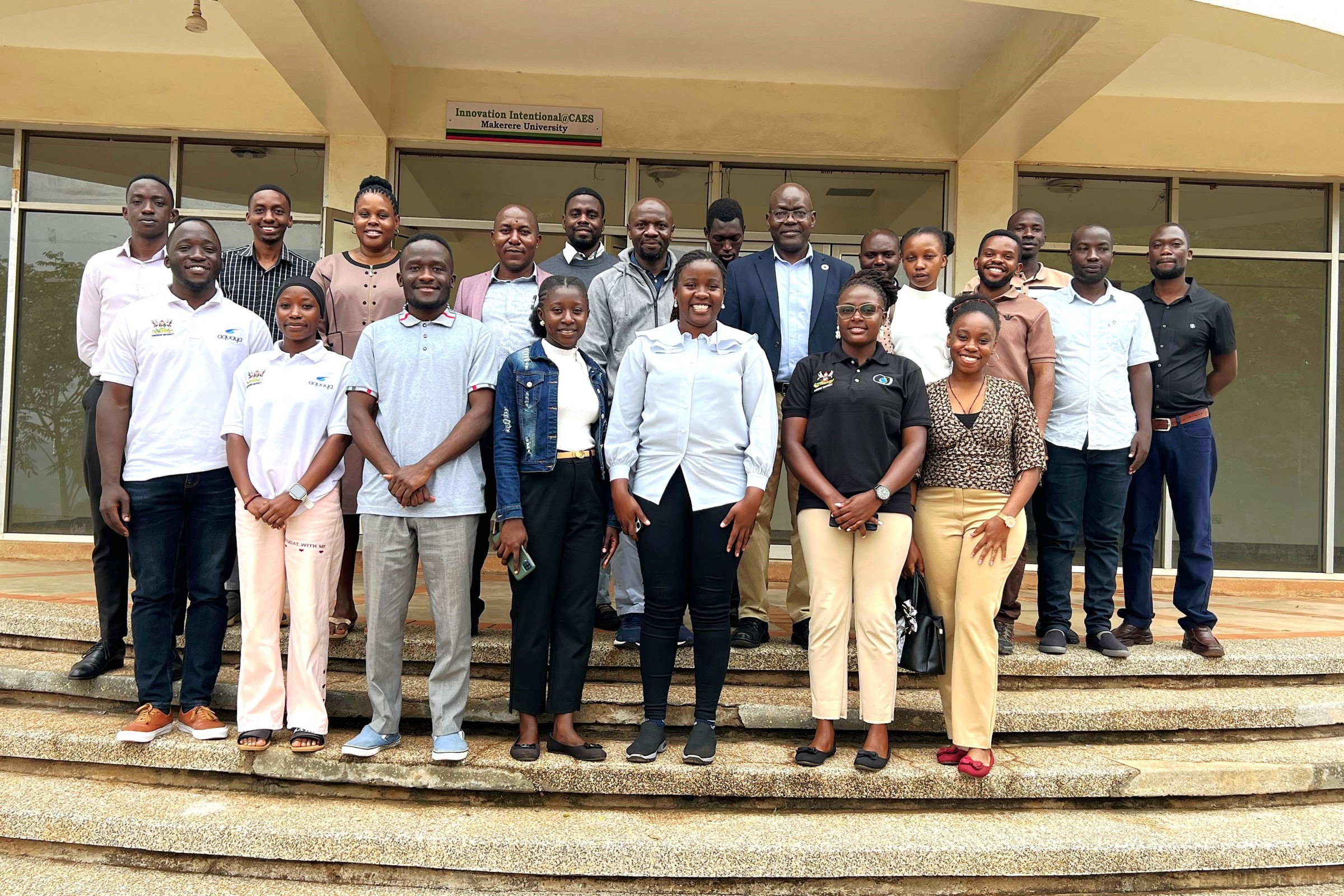
Overview of the Sustainable Off-Grid Solutions for Pharmacies and Hospitals in Africa (SophiA) Project
Despite ongoing urbanization across Africa, the majority of the population still resides in rural and remote areas, where infrastructure development remains limited. These regions face significant challenges such as lack of access to healthcare, education, clean water, and reliable electricity, contributing to higher rates of illness and poverty compared to urban centres. According to reports, Sub-Saharan Africa has approximately 120,000 public health facilities (22,000 hospitals and 98,000 health posts), of which around 26% lack any electricity access, and only 28% have reliable power supply.
Access to good healthcare is critical for sustainable development. However, many rural medical centres operate under harsh conditions – using polluted water, lacking cooling for medicines, and facing poor sanitation – largely due to unreliable electricity and water supply. Although half of the population in Sub-Saharan Africa lacks electricity, the region has abundant renewable energy potential that can be effectively harnessed through off-grid solar photovoltaic (PV) systems.
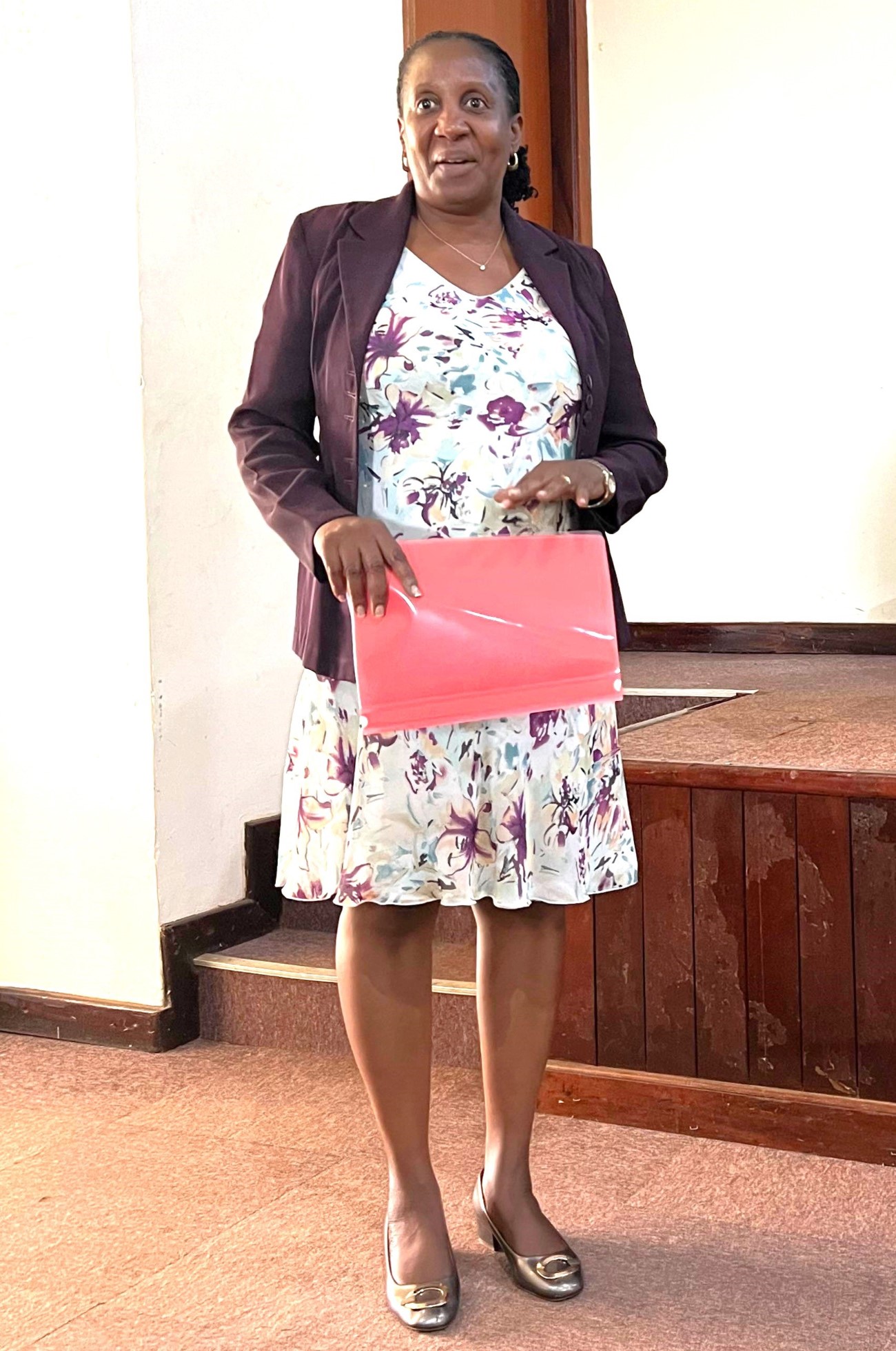
To address the above-mentioned challenges facing the African Continent, Makerere University in partnership with 13 organizations across Europe and Africa developed a project titled, “Sustainable Off-grid solutions for Pharmacies and Hospitals in Africa (SophiA)”. The five-year project that began on 1st October 2021 is funded by the European Union (Project: 101036836 – SophiA – H2020-LC-GD-2-3-2020). At Makerere University, the project is coordinated by Dr. Nicholas Kiggundu, Associate Professor in the Department of Agricultural and Biosystems Engineering, College of Agricultural and Environmental Sciences (CAES).
Piloted in Burkina Faso, Cameroon, Malawi, and Uganda, SophiA aims to provide sustainable off-grid energy solutions to rural and remote health facilities, fostering economic growth and ensuring equitable access to energy and healthcare. Using various technologies, such as photovoltaics, solar thermal, electrical and thermal storage, water treatment and natural refrigerants with low global warming potential, SophiA has developed and manufactured locally innovative, modular, affordable and efficient solar powered systems for providing:
- Safe and clean drinking water, free of bacteria and viruses, and deionised water for medical purposes;
- Hot water and steam production for thermal requirements of the hospitals;
- Cooling of medicines and food at +5°C;
- Low temperature storage of blood plasma and vaccines at -30°C;
- Ultra-low temperature storage of sensitive medication (e.g. some Covid-19 or Ebola vaccines) at -70°C.
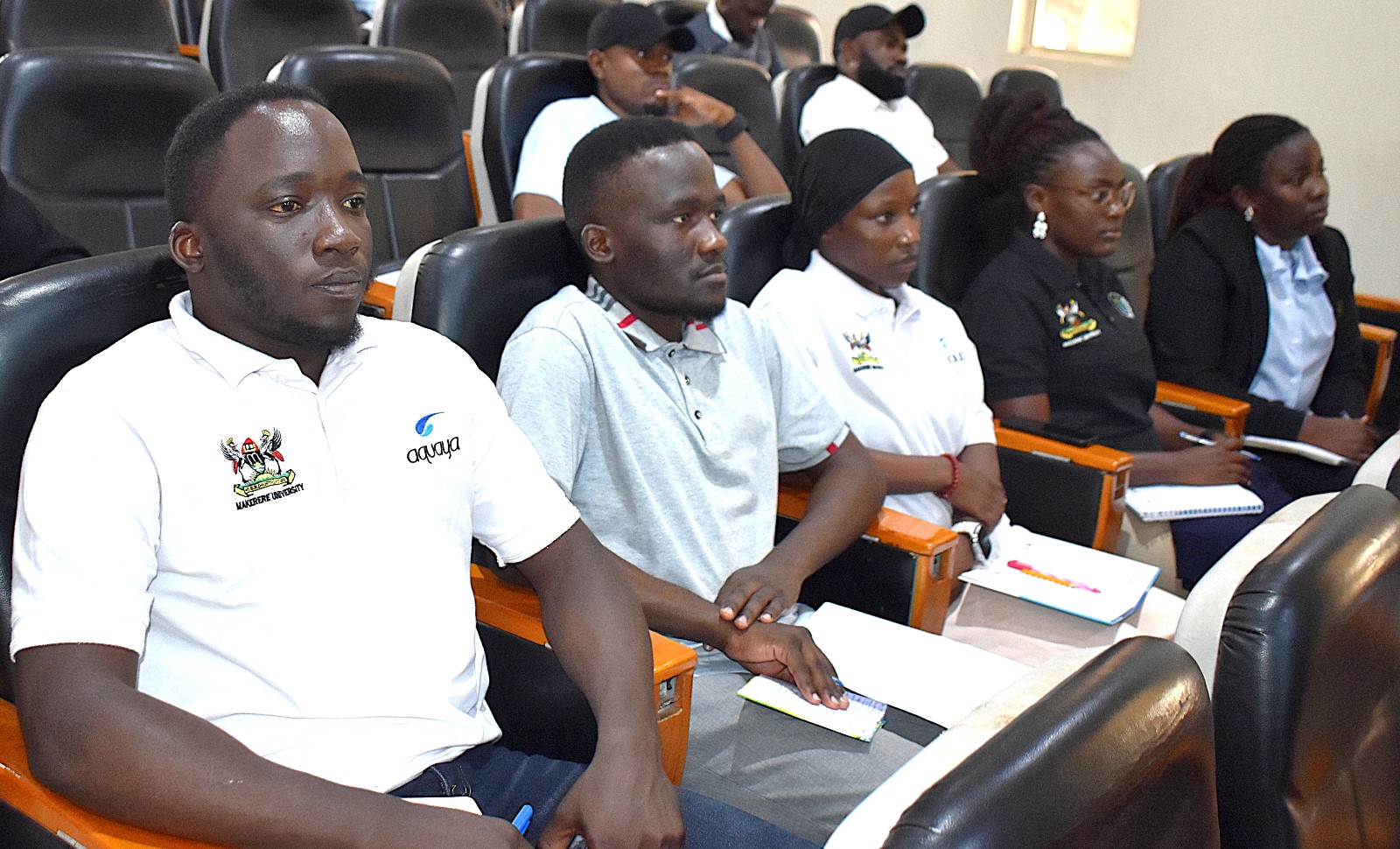
In addition, PV MedPort, a simple and 100% solar-powered solution has been developed and tested as a mobile health care station in small remote areas in 4 different geographical conditions in Africa. The SophiA system has been manufactured in Africa and will provide, for the first-time, innovative solutions based on climate-friendly natural refrigerants to cover cooling demand for three different temperature ranges (-70°C, -30°C and +5°C). The system has been tested and demonstrated at four rural hospitals in remote regions throughout the African continent covering the major geographical regions and different climatic conditions in Burkina Faso, Cameroon, Malawi and Uganda.
SophiA Project initiatives in Uganda
In Uganda, all Health Centre IV hospitals with surgical theatres have been connected to the national grid except Buvuma Health Centre IV, which serves over 120,000 people scattered across 52 islands. Recognizing this gap, the Ministry of Health selected Buvuma Health Centre IV for the SophiA project to demonstrate sustainable off-grid solutions.
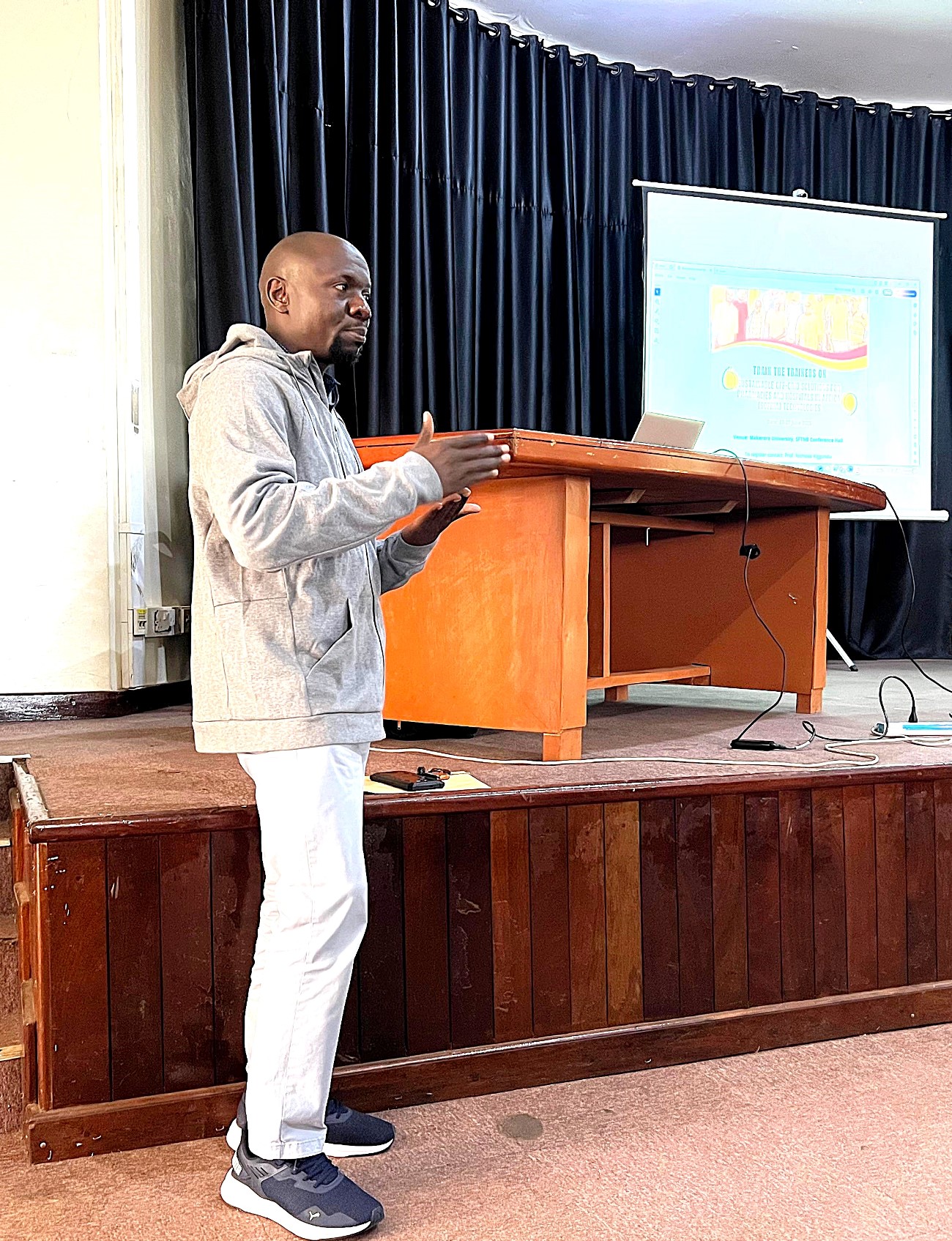
The SophiA System at Buvuma Health Centre IV provides the following services:
- Off-grid electricity supply
- Safe, clean drinking water for patients, staff, and the community
- Hot water and steam systems crucial for maternal care
- Solar-powered cooking and meal preparation
- Cooling systems for surgery and intensive care units
- Refrigeration for medicines at +5°C, blood plasma storage at -30°C, and ultra-low temperature storage (-70°C) for sensitive vaccines such as those for COVID-19 and Ebola
Training of Trainers Workshop
As the SophiA project approaches completion in September 2025, it is vital to establish a skilled pool of technicians capable of handling maintenance and minor repairs of the system components, including solar panels, water treatment units, generators, batteries, and cooking kits.
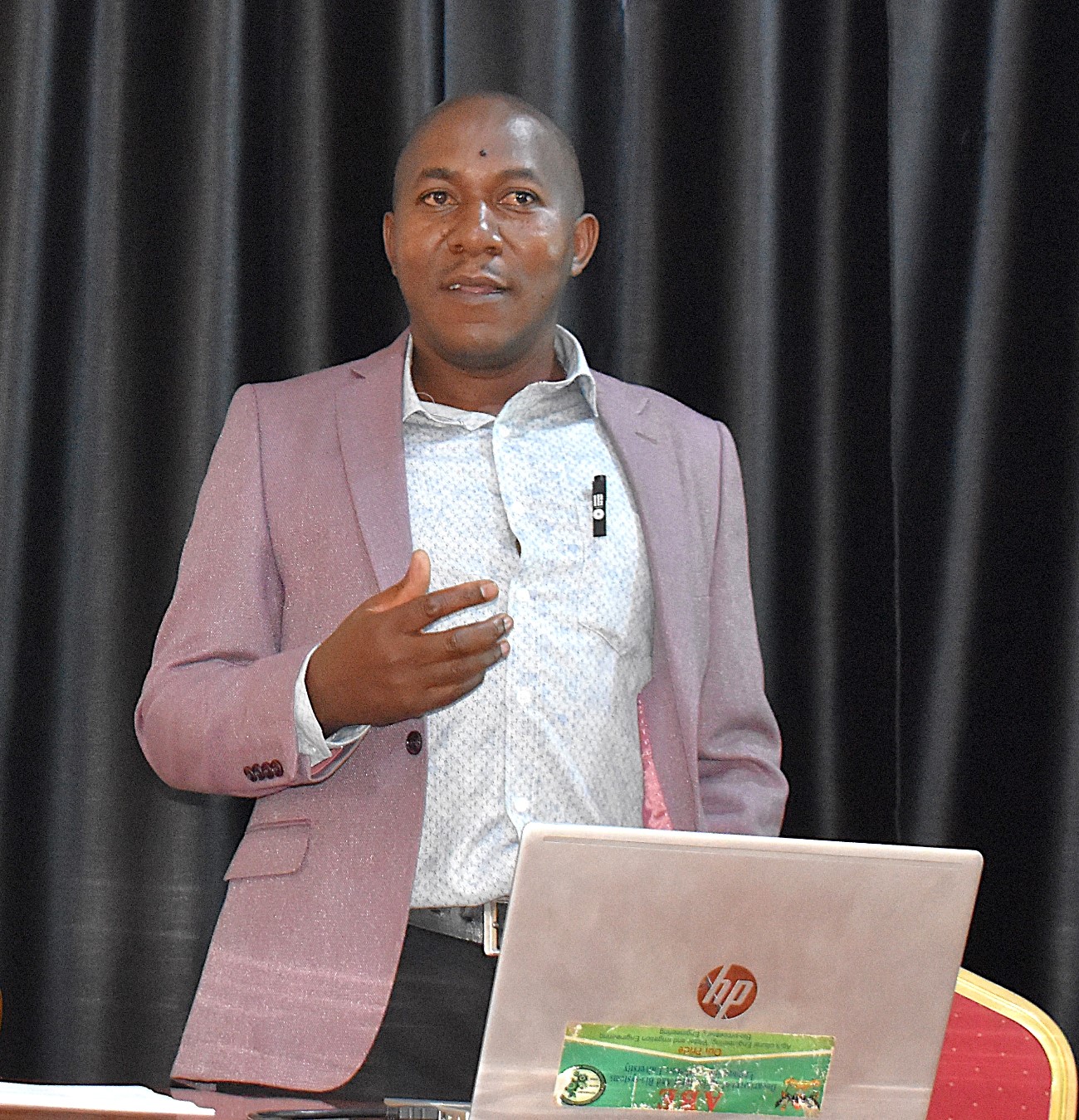
From June 23 to 27, 2025, Makerere University hosted a comprehensive Training of Trainers workshop. The training programme encompassed a diverse range of topics delivered by subject matter experts from institutions, including Makerere University (Department of Agricultural and Biosystems Engineering – CAES, and the College of Engineering, Design, Art and Technology – CEDAT), Hochschule University of Applied Sciences, and Busitema University. Participants were carefully selected from diverse professional backgrounds, including recent engineering graduates from CAES and CEDAT, Makerere University, University technical staff, personnel from Kyambogo University, officials from Buvuma District Works and Health Departments, and electricians from Kampala City. The training sessions were conducted at Makerere University and Buvuma Health Centre IV Hospital.
Training Modules Included:
- Sustainable energy systems and their practical applications
- Energy generation and storage technologies
- Solar water heating: design, operation, maintenance, and performance optimization of solar water heaters, crop dryers, and concentrating solar heaters
- Solar PV technologies in Uganda: cell technology, system design, operations, maintenance, and hands-on practicals for standalone and grid-connected systems
- Public health implications of water quality
- Water treatment and quality management, including protocols, parameters, and case study on the MCDI treatment system
- Water quality testing methodologies
- Introduction to sustainable refrigeration and cooling technologies
- Environmental impact and safety considerations for refrigerants
- Refrigeration cycles and component overview
- Life cycle assessment of SophiA technologies
- Thermal energy storage within the SophiA system
- Steam as a productive energy source
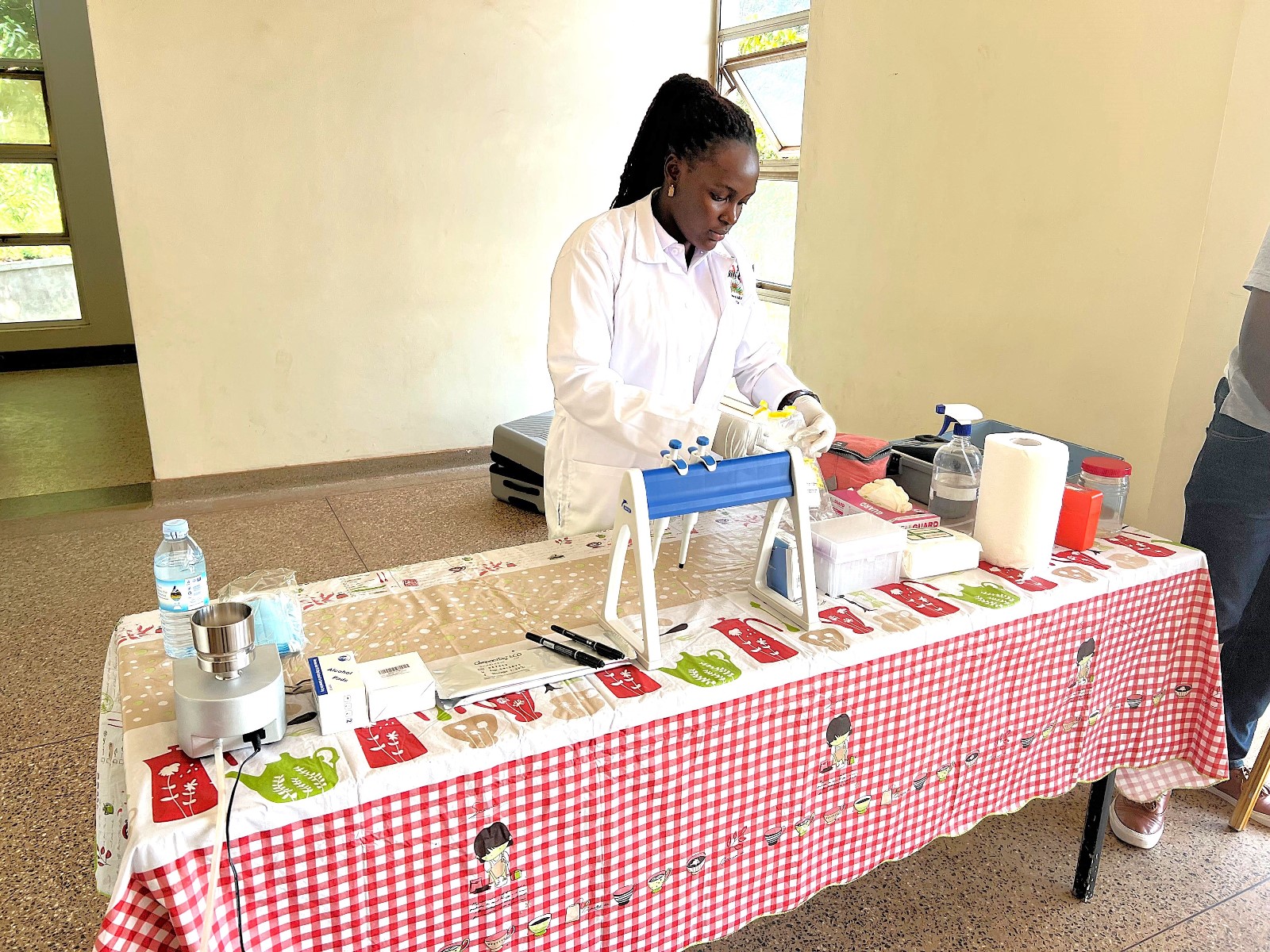
The Training Sessions
Day One: Introduction to foundational concepts in solar energy technologies
The first day of the SophiA Train the Trainers Workshop focused on building foundational knowledge in sustainable and solar energy systems. Led by Dr. Peter Tumutegyereize and Dr. Francis Mujjuni, participants explored a range of technologies and applications critical to clean energy deployment.
Key topics included:
Sustainable Energy Systems: Introduction to renewable energy systems including bioenergy, hydro, wind, geothermal, hydrogen fuel cells, and battery storage.
Solar Radiation & Geometry: Understanding solar constants, irradiance, and the impact of atmospheric conditions on solar performance.
Solar Thermal Technologies: Detailed look at solar water heating systems (FPCs and ETCs), maintenance, sizing, and solar dryers for agricultural and industrial use.
Photovoltaic (PV) Systems: Working principles, types of PV cells, performance factors, and diagnostics. Practical testing techniques and metrics like Voc, Isc, MPP, and PR were discussed.
Simulation & Application: Olivia Nakiwanuka demonstrated a PVsyst-based simulation of a 2.55 kWp standalone system for a conference hall, showing a high solar fraction (97.88%) and low LCOE (USD 0.03/kWh).
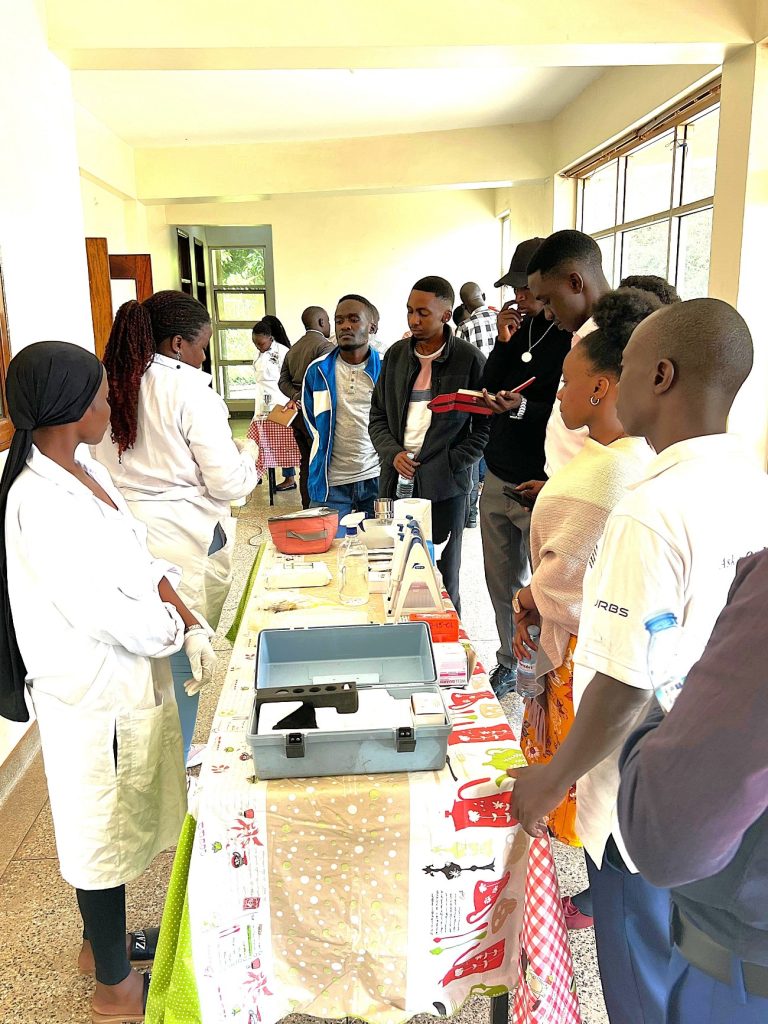
The sessions emphasized practical skills, performance analysis, and real-world application, equipping participants to train others and support solar adoption, especially in rural and off-grid settings.
Day Two: Water Treatment Technologies
The second day focused on water treatment technologies relevant to low-resource healthcare settings. Facilitated by Sneha De and Mr. Duc Dinh Ngoc from Hochschule Karlsruhe University, sessions covered technical, environmental, and operational challenges, with contributions from Dr. Joshua Wanyama on water quality management and Dr. Prossie Nakawuka on practical water testing.
Key challenges addressed included unreliable water supply and contamination in healthcare facilities, emphasizing the need for decentralized water treatment, especially in rural areas.
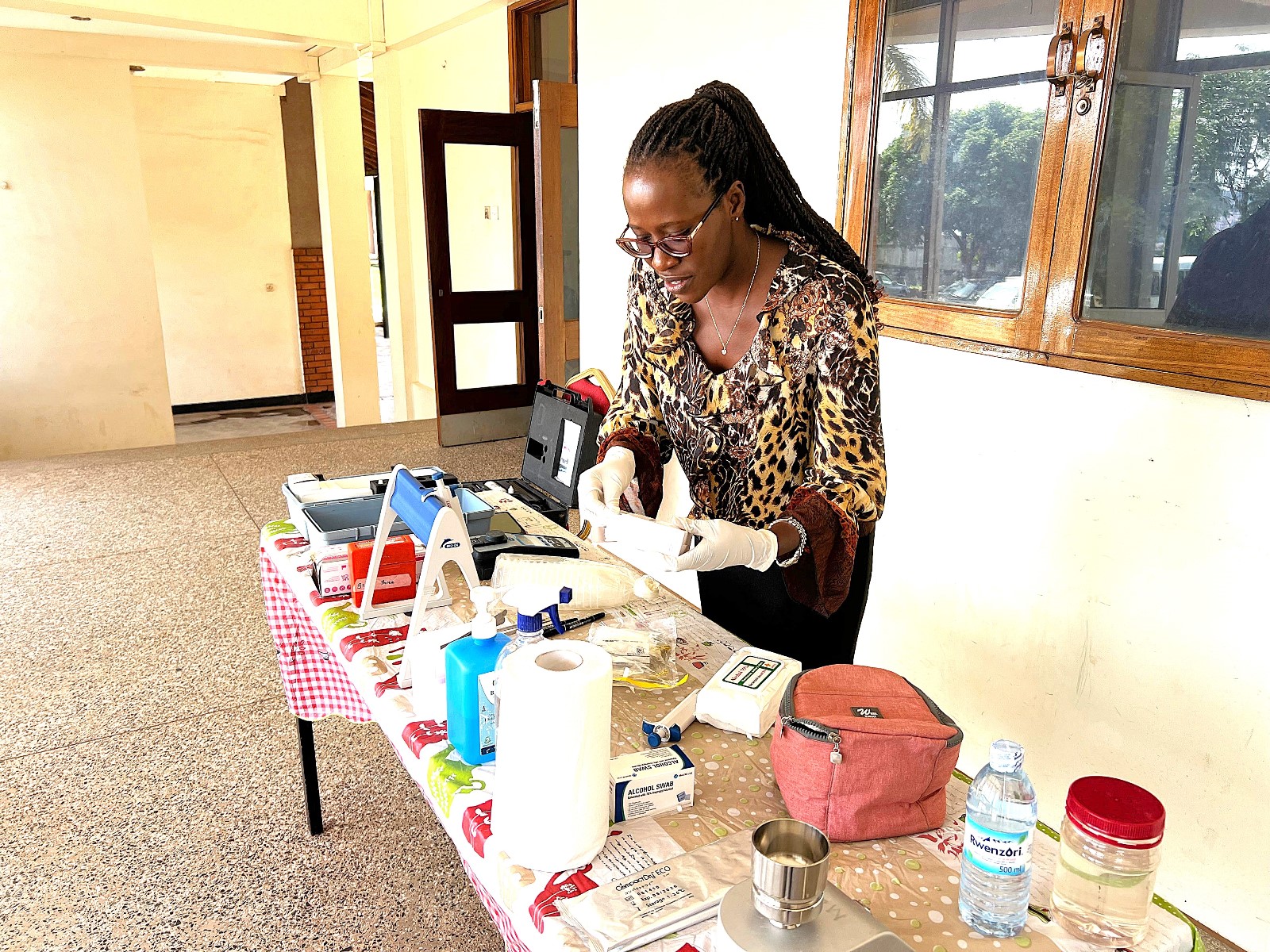
Sneha De reviewed biological and physical/chemical water treatment methods, highlighting technologies such as activated sludge, filtration, membrane bioreactors, and advanced disinfection techniques. The SophiA modular water treatment system, integrating ultrafiltration and membrane capacitive deionisation (MCDI), was introduced as a scalable solution for producing safe drinking and deionised water for medical use.
Mr. Duc Dinh Ngoc trained participants on the MCDI technology, an energy-efficient method for salt and fluoride removal suitable for low-salinity water.
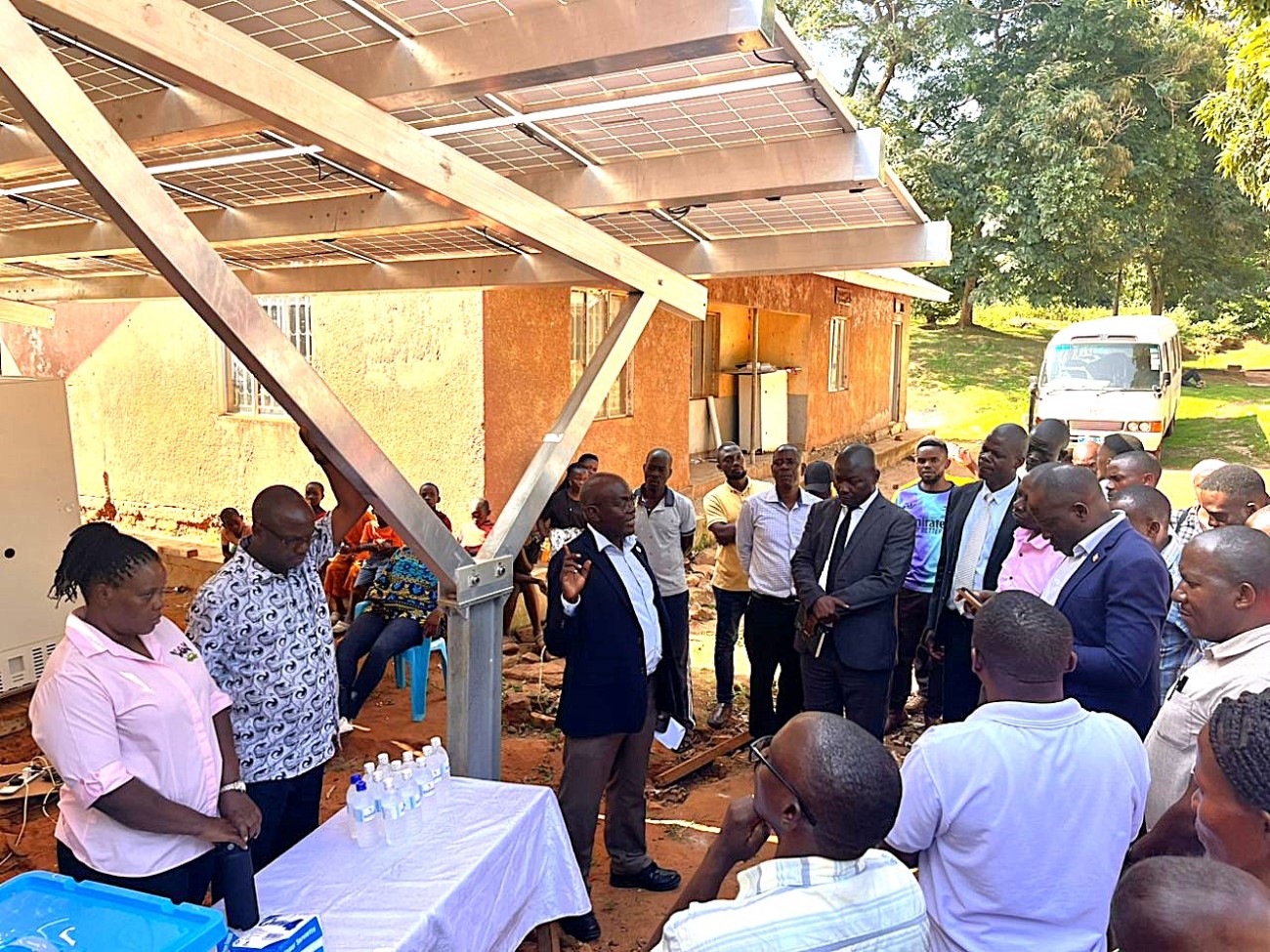
Dr. Joshua Wanyama discussed the water quality management protocols, outlining key physical, chemical, and biological water parameters and monitoring strategies, including modern IoT-based tools, to ensure water safety and public health.
The day concluded with a hands-on lab session by Dr. Prossie Nakawuka, where participants practiced water quality testing using turbidimeters, incubators, and filtration techniques.
Overall, Day Two combined theoretical insights, technology demonstrations, and practical skills, preparing participants to implement sustainable water treatment and quality management systems in healthcare environments.
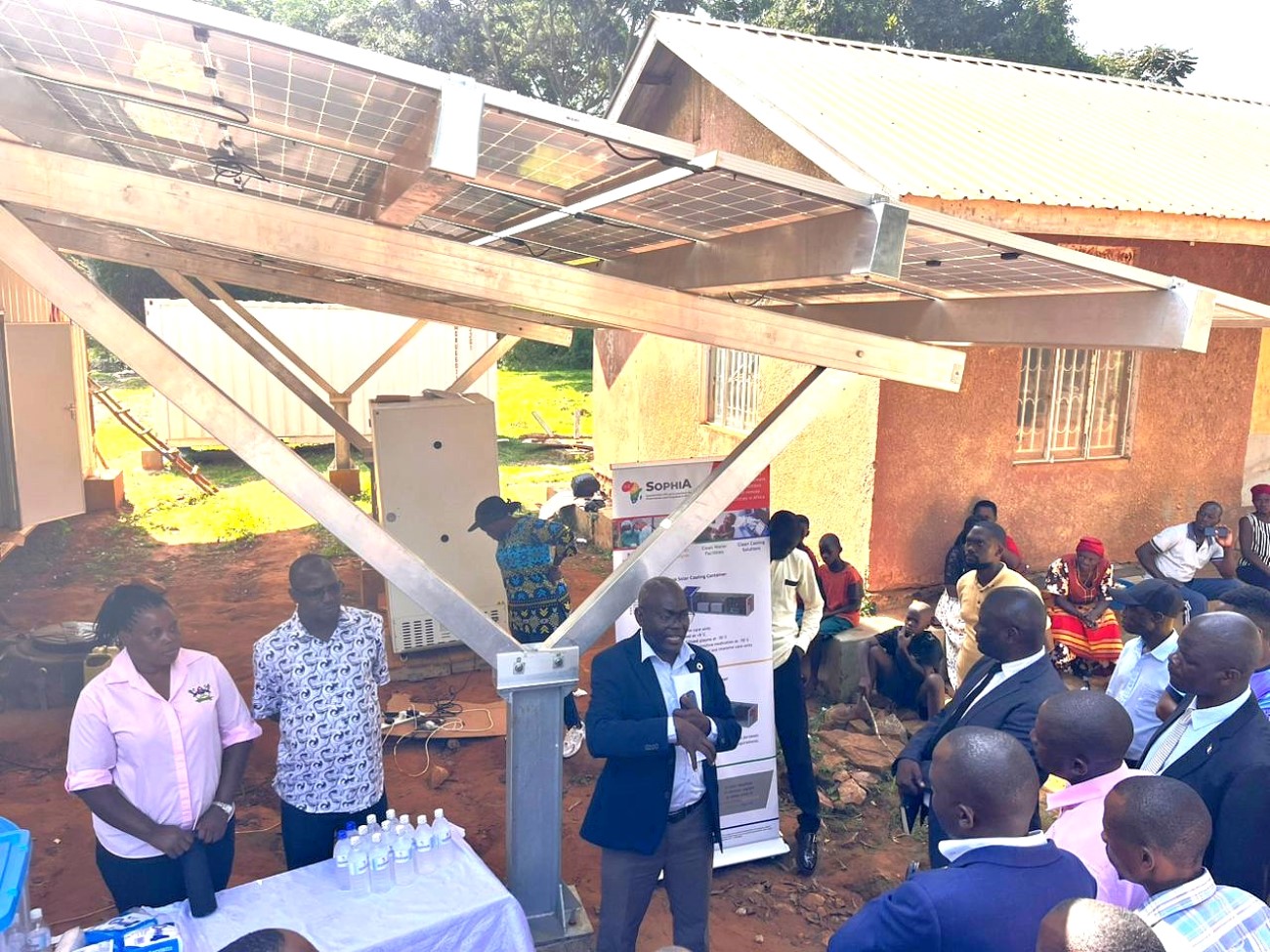
Day Three: Refrigeration and Cold Storage
The third day of the SophiA workshop focused on sustainable refrigeration and cold storage technologies tailored for healthcare in Sub-Saharan Africa. Experts discussed energy-efficient, climate-friendly cooling solutions vital for vaccine storage, medicines, and diagnostics, especially in off-grid and rural settings.
Key highlights included the introduction of solar-powered and biomass-based refrigeration systems, thermal energy storage methods, and the use of natural refrigerants like propane, ammonia, and CO₂ as environmentally safer alternatives. Presentations emphasized the critical role of refrigeration in healthcare and the urgent need to replace harmful chemicals with sustainable technologies.
Sessions covered real-world applications such as the SophiA cooling containers in Burkina Faso, safety protocols for flammable refrigerants, and the environmental and economic benefits of solar refrigeration systems assessed through life cycle analysis.
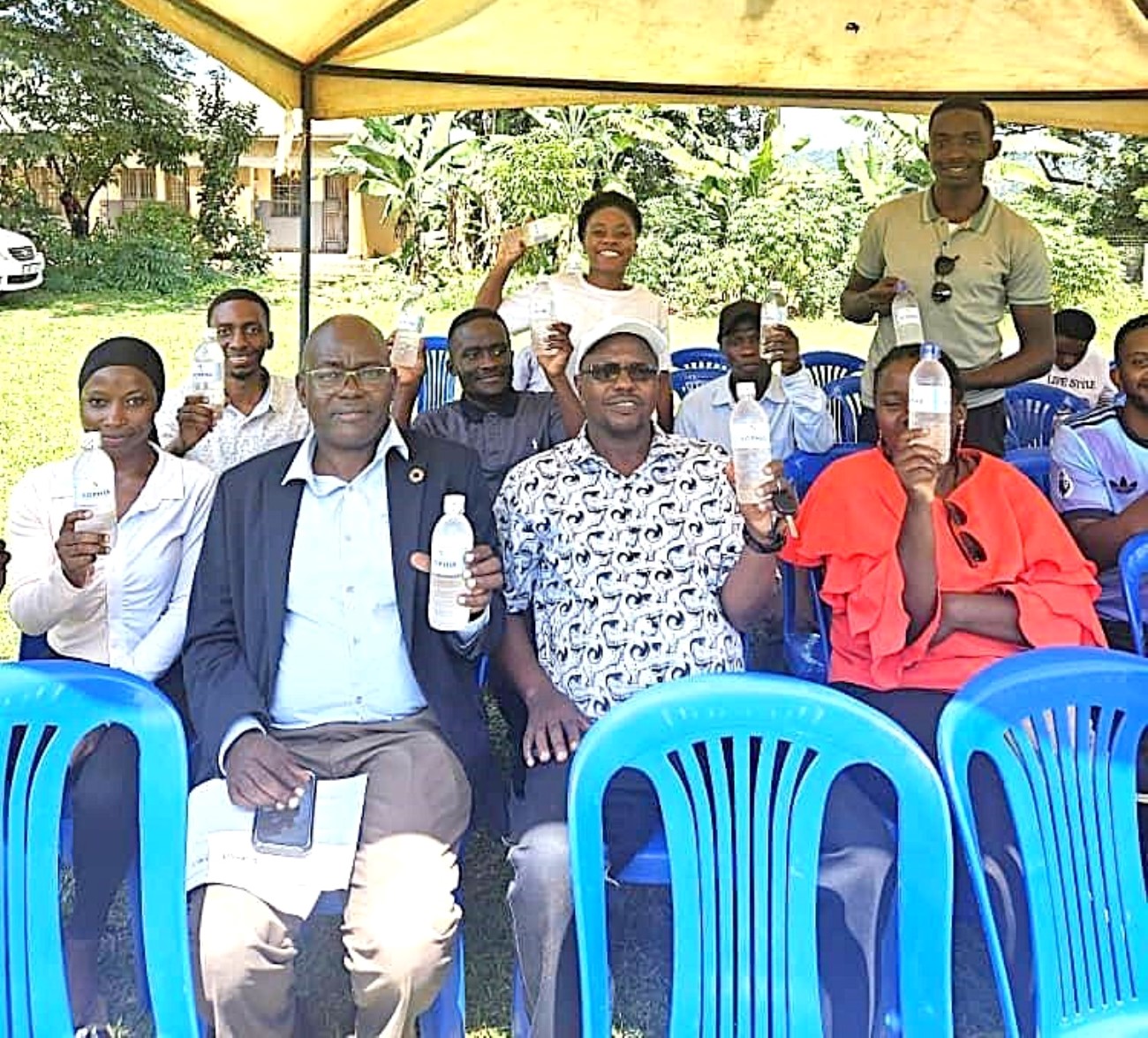
The day ended with an interactive quiz and discussion, reinforcing learning and encouraging participants to apply sustainable cooling practices in their communities.
Day Four: World Refrigeration Day & Field Visit to Buvuma Island
The fourth day of the SophiA Train the Trainers workshop was dedicated to the celebration of the World Refrigeration Day and a field excursion to Buvuma Island, providing participants with a unique opportunity to witness the SophiA system in action. The day was coordinated by Dr. Sarah Bimbona and Dr. Nicholas Kiggundu, who led the delegation to Buvuma Health Centre IV, the pilot site for the SophiA installation in Uganda.
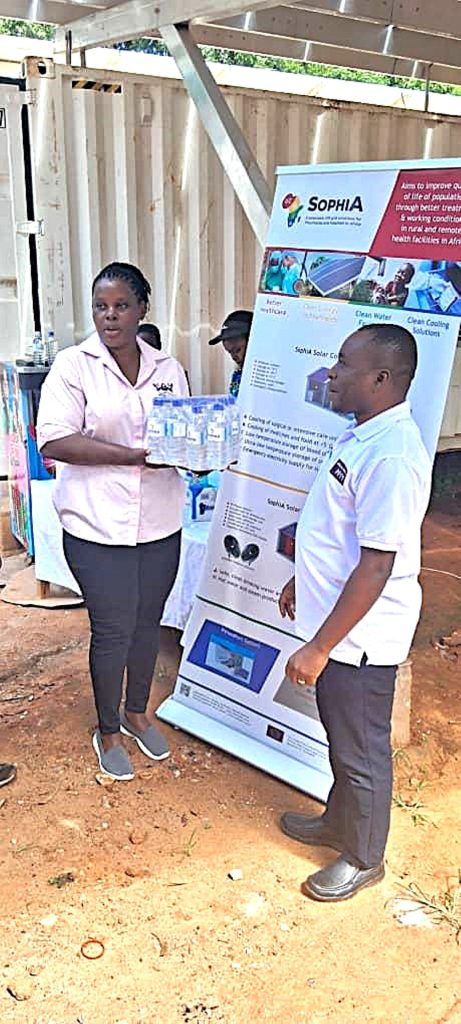
The visit served as both a practical extension of the previous day’s technical sessions and a community engagement event. Participants were able to observe the installed SophiA system, which integrates solar-powered refrigeration, water treatment and steam generation technologies designed for off-grid healthcare settings. During the visit, Dr. Kiggundu provided a detailed briefing to local stakeholders, including representatives from the Buvuma District Local Government, delegates from the Buganda Kingdom, and members of the local community. He explained how the SophiA system will enhance healthcare delivery on the island through reliable cold storage for vaccines and medicines, access to clean drinking water, and steam generated for cooking and use in the maternity wards.
As part of the long-term sustainability plan for the SophiA system, the launch of SophiA Water was announced, an entrepreneurial initiative designed to generate revenue locally for the operation and maintenance of the system.
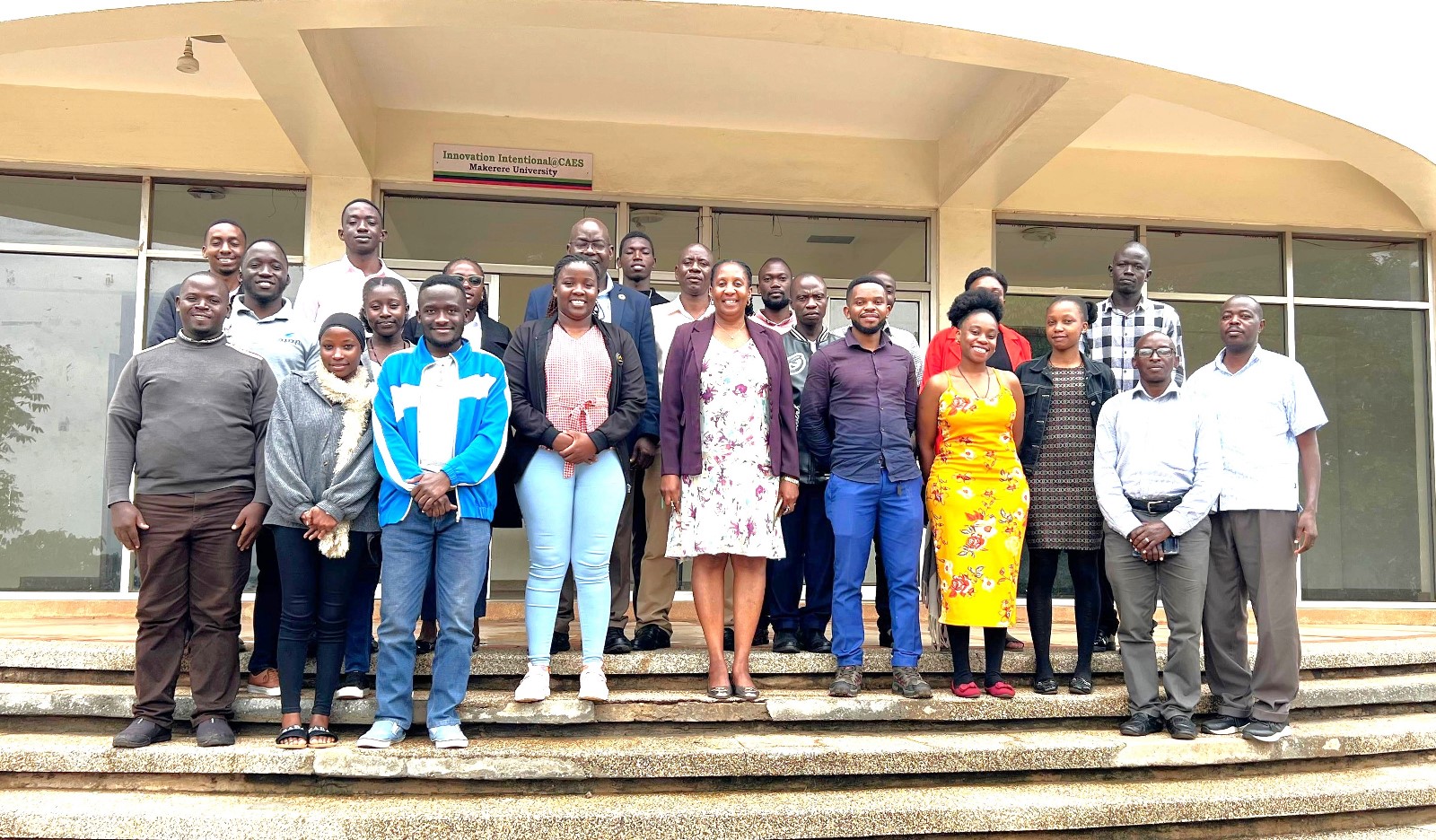
The field trip ended with a certificate awarding ceremony in appreciation of the participants’ dedication and active engagement throughout the training programme.
Agriculture & Environment
APRC Trains Graduate Students & Stakeholders in the Use of the African Agriculture Adaptation Atlas
Published
2 weeks agoon
July 3, 2025
The Agricultural Policy Research Centre (APRC), housed within the College of Agricultural and Environmental Sciences (CAES) at Makerere University, continues to play a pivotal role in shaping Uganda’s agricultural future through evidence-based policymaking. With a mission to ensure that agricultural policies are grounded in empirical research and data, APRC is actively investing in capacity-building initiatives that empower researchers, policymakers, and development actors.
In a significant stride toward building climate resilience in African agriculture, APRC recently organized a two-day intensive training workshop focused on the African Agriculture Adaptation Atlas (AAAA) – a state-of-the-art, web-based decision-support platform that facilitates the integration of climate data into agricultural planning and policy.

The workshop, held on Wednesday 25th and Thursday 26th June 2025 at the School of Agricultural Sciences, Makerere University, targeted two key groups: graduate students on the first day, and university faculty, government officials, and development practitioners on the second. This structure ensured tailored learning experiences for both emerging and seasoned professionals, helping to bridge the gap between academic research and real-world policy implementation.
The African Agriculture Adaptation Atlas (AAAA) is designed to provide dynamic, data-rich visualizations that support informed decision-making in agriculture and food systems across the continent. Through interactive maps and analytical tools, users can explore projected climate impacts, evaluate risks, and identify localized, climate-smart adaptation strategies.

Throughout the sessions, participants received hands-on training in a broad range of AAAA functionalities, including:
- Leveraging the Atlas for research and policy communication: Enhancing the ability of scientists and policy actors to translate complex climate data into actionable insights;
- Assessing projected climate impacts and associated agricultural risks: Essential for forward-looking planning and risk mitigation;
- Identifying climate-smart investment options, with a particular focus on the livestock sector, which is especially vulnerable to climate shocks;
- Analysing gendered vulnerabilities: Examining how climate change disproportionately affects women in agricultural communities;
- Understanding the implications of heat stress on agricultural productivity: Supporting targeted interventions to protect producers and their livelihoods;
- Estimating the economic returns of adaptation strategies: Aiding in prioritizing investments and allocating limited resources effectively.

Prof. Bernard Bashaasha, the APRC Coordinator, emphasized the importance of the training in advancing Africa’s adaptation agenda. “As climate change continues to threaten food security and disrupt livelihoods across the continent, tools like the AAAA, and the skills to use them effectively are essential. They empower decision-makers to craft policies that are adaptive, inclusive, and rooted in science,” he noted.
The workshop was coordinated by Dr. Florence Rwiza, Lecturer in the Department of Agribusiness and Natural Resource Economics at CAES.
More photos from the Training






Trending
-

 General2 weeks ago
General2 weeks agoRe-advert: Admission to Undergraduate Programmes 2025/2026
-

 General1 week ago
General1 week agoRe-Advert for Applications for Diploma and Certificate Training
-

 General5 days ago
General5 days agoMakerere University Fees Waiver for 40 First Year Female Students 2025/2026
-

 General2 weeks ago
General2 weeks agoPress Statement on Ranking
-

 Health1 week ago
Health1 week agoCall for Applications: Responsible Conduct of Research (RCR) Training Course
